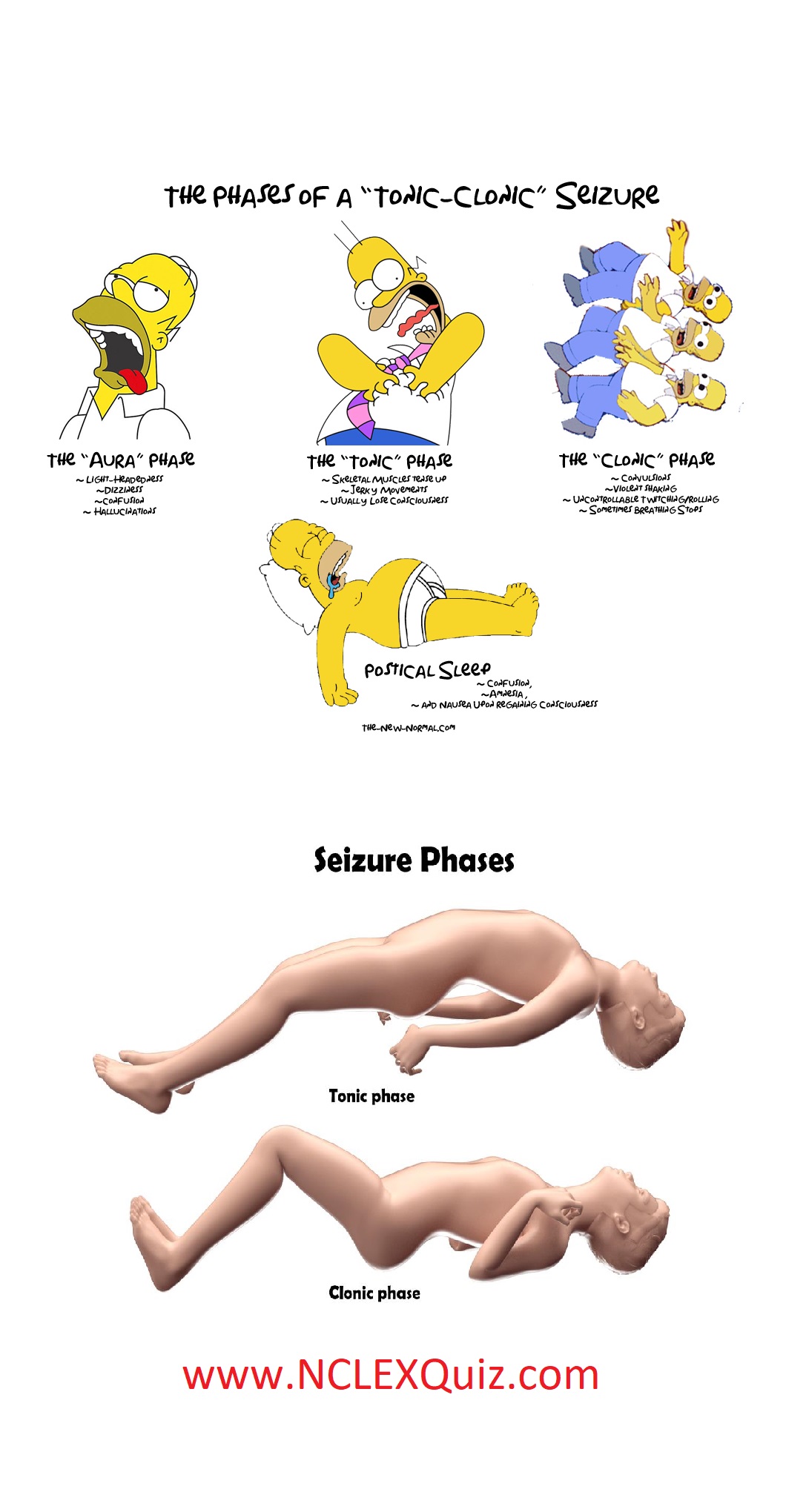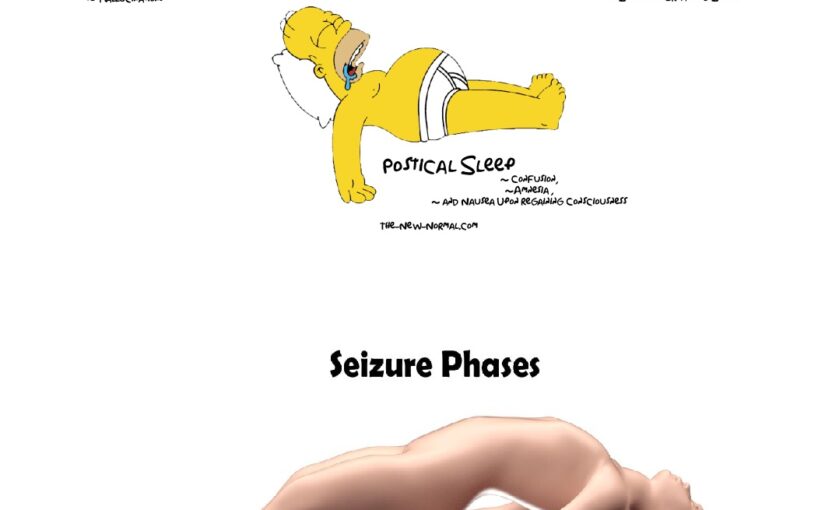Nursing Care for Patients with Seizures – A Review for the NCLEX
Seizures are a common occurrence in the medical field, and nurses are often the first to respond to a patient experiencing one. In order to provide the best possible care, it is important for nurses to understand the four stages of a seizure.
The four stages of a seizure are:
Prodromal stage: This is the earliest stage of a seizure, and it can occur hours, days, or even weeks before the actual seizure. People who experience this stage may notice changes in their mood, behavior, or physical sensations.
Aura: The aura is a brief period of altered awareness that occurs just before a seizure. The aura can be different for each person, but some common symptoms include visual disturbances, sensory disturbances, emotional disturbances, and cognitive disturbances.
Ictal stage: The ictal stage is the actual seizure itself. This stage can last for a few seconds to a few minutes, and the symptoms will vary depending on the type of seizure.
Postictal stage: The postictal stage is the period after the seizure. This stage can last for minutes to hours, and people may experience a variety of symptoms, such as confusion, drowsiness, fatigue, headache, muscle aches, and sensitivity to light or noise.

How to Recognize and Respond to a Seizure: A Guide for Nurses
1. Prodromal stage
The prodromal stage is the earliest stage of a seizure. It can occur hours, days, or even weeks before the seizure itself. People who experience this stage may notice changes in their mood, behavior, or physical sensations. For example, they may feel tired, anxious, or have a strange taste in their mouth.
2. Aura
The aura is a brief period of altered awareness that occurs just before a seizure. The aura can be different for each person, but some common symptoms include:
- Visual disturbances, such as seeing flashing lights or zigzag lines
- Sensory disturbances, such as numbness, tingling, or a feeling of pins and needles
- Emotional disturbances, such as fear, anxiety, or déjà vu
- Cognitive disturbances, such as confusion or difficulty speaking
3. Ictal stage
The ictal stage is the actual seizure itself. This stage can last for a few seconds to a few minutes, and the symptoms will vary depending on the type of seizure. Some common symptoms of the ictal stage include:
- Loss of consciousness
- Muscle contractions
- Jerking movements
- Shaking
- Confusion
- Speech difficulties
- Incontinence
4. Postictal stage
The postictal stage is the period after the seizure. This stage can last for minutes to hours, and people may experience a variety of symptoms, such as:
- Confusion
- Drowsiness
- Fatigue
- Headache
- Muscle aches
- Sensitivity to light or noise
